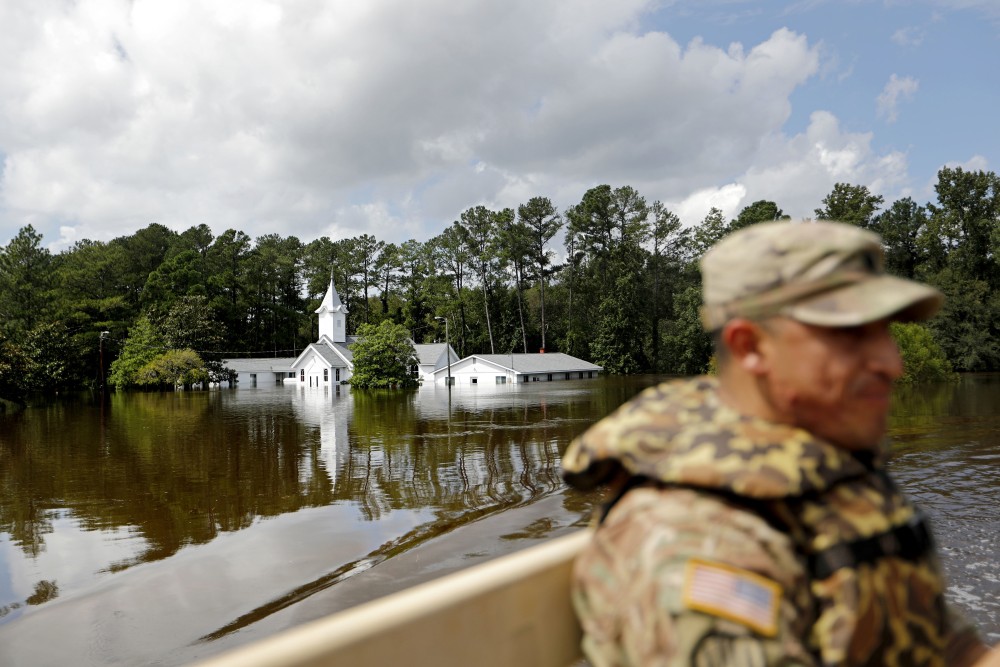Hurricane-struck churches apply for FEMA aid
The possibility of federal funds paying to restore sanctuaries is a change from previous FEMA policy.

In the aftermath of Hurricanes Florence and Michael on the Eastern Seaboard—which caused dozens of deaths in Georgia, Florida, North and South Carolina, and Virginia—congregations have the potential of receiving government aid to help them recover.
Baptist and Methodist disaster relief workers, representing the region’s largest denominations, have begun taking an inventory of the number of sanctuaries damaged. Thanks to a lawsuit filed on behalf of churches damaged by Hurricane Harvey in Texas, the workers are also directing congregations to sources of government assistance.
One requirement for congregations who are applying is to prove they serve a community role.





